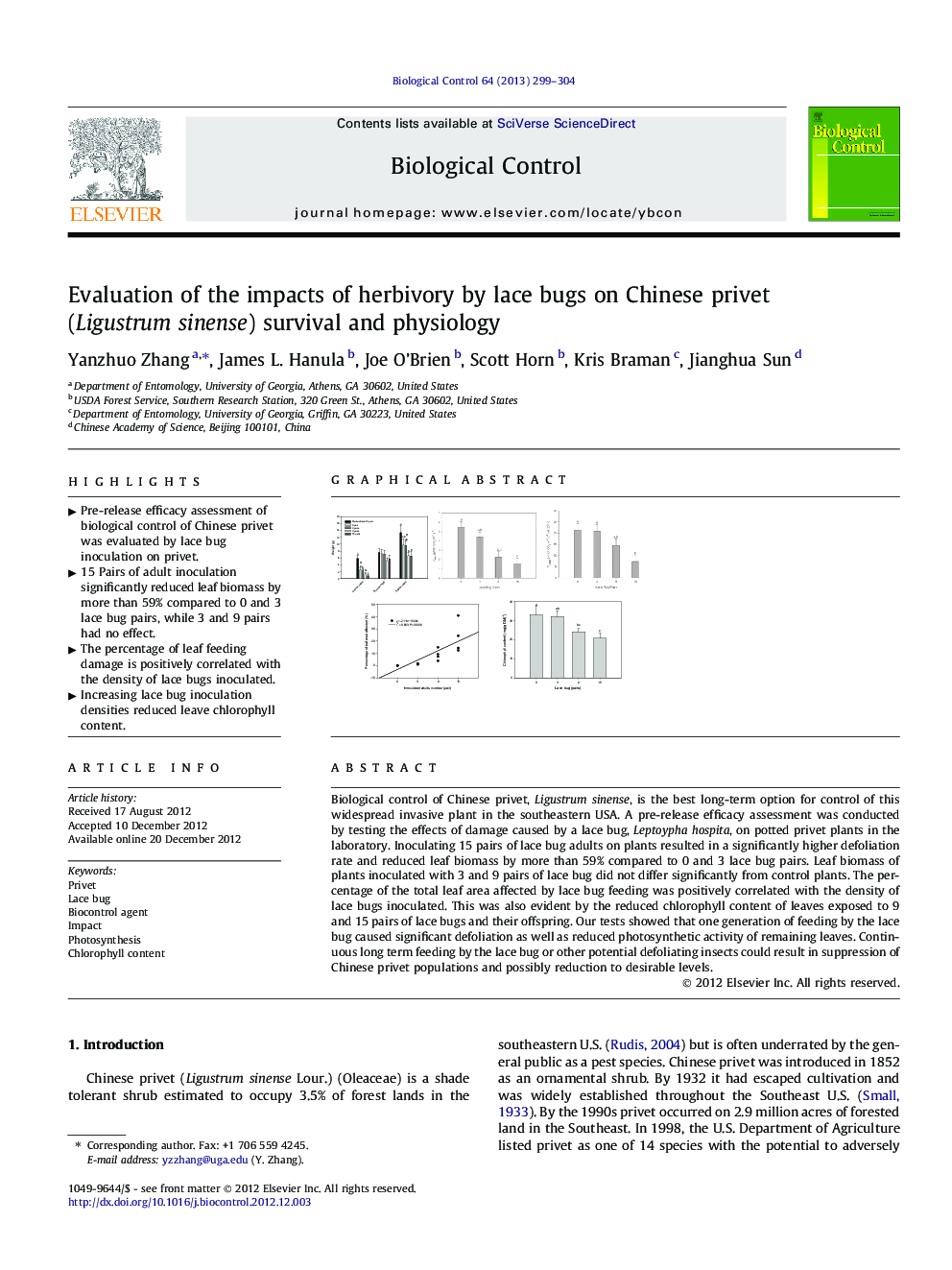| Article ID | Journal | Published Year | Pages | File Type |
|---|---|---|---|---|
| 6372804 | Biological Control | 2013 | 6 Pages |
Biological control of Chinese privet, Ligustrum sinense, is the best long-term option for control of this widespread invasive plant in the southeastern USA. A pre-release efficacy assessment was conducted by testing the effects of damage caused by a lace bug, Leptoypha hospita, on potted privet plants in the laboratory. Inoculating 15 pairs of lace bug adults on plants resulted in a significantly higher defoliation rate and reduced leaf biomass by more than 59% compared to 0 and 3 lace bug pairs. Leaf biomass of plants inoculated with 3 and 9 pairs of lace bug did not differ significantly from control plants. The percentage of the total leaf area affected by lace bug feeding was positively correlated with the density of lace bugs inoculated. This was also evident by the reduced chlorophyll content of leaves exposed to 9 and 15 pairs of lace bugs and their offspring. Our tests showed that one generation of feeding by the lace bug caused significant defoliation as well as reduced photosynthetic activity of remaining leaves. Continuous long term feeding by the lace bug or other potential defoliating insects could result in suppression of Chinese privet populations and possibly reduction to desirable levels.
Graphical abstractDownload full-size imageHighlights⺠Pre-release efficacy assessment of biological control of Chinese privet was evaluated by lace bug inoculation on privet. ⺠15 Pairs of adult inoculation significantly reduced leaf biomass by more than 59% compared to 0 and 3 lace bug pairs, while 3 and 9 pairs had no effect. ⺠The percentage of leaf feeding damage is positively correlated with the density of lace bugs inoculated. ⺠Increasing lace bug inoculation densities reduced leave chlorophyll content.
